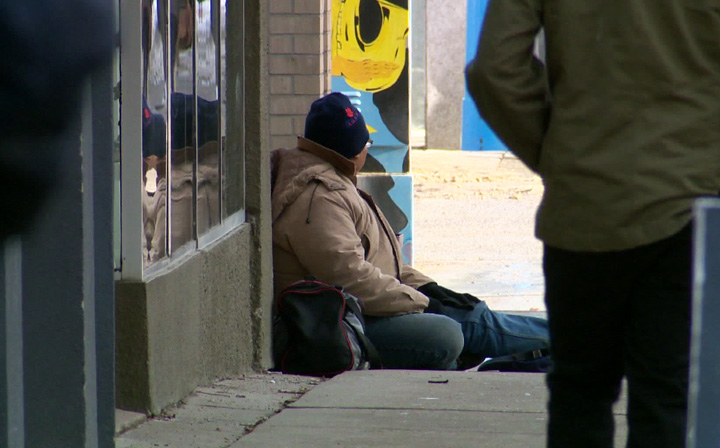VANCOUVER – He was a wily character with a bright personality, known for philosophical musings as he sold flowers from the streets of downtown Vancouver where he also lived for 15 years.

But there would be no storybook ending for Tom Sawyer, a homeless man who died of blunt force trauma in an alleyway, believed to be the victim of unknown assailants.
A report released Thursday highlighting the risks of vagrancy found that homelessness cuts a person’s life span in half in British Columbia, with the majority of deaths by accident, suicide or homicide.
“In some ways, I was really surprised he survived that long,” said Tom’s brother Doug Sawyer, of the 55-year-old’s March 2010 death. “It is a pretty dangerous place.
“I don’t know what you can do about that, except for trying to get people a safe place to at least sleep.”
Megaphone Magazine is touting its report of street deaths, based on data from the B.C.’s Coroners Service, as the first comprehensive survey into homeless-related mortality in the province. It also contrasts a lack of data available across Canada.
The Vancouver-area advocacy group found the average age at death is between 40 and 49 years old for someone without a home, compared to the life expectancy of an average British Columbian at around 82 years old.
Nearly 72 per cent of the general population dies of natural causes, while almost 48 per cent of homeless die accidentally from causes like overdoses, drowning and murder, the report concluded.
- Three B.C. men fined, banned from hunting after killing pregnant deer
- B.C. child-killer’s attempt to keep new identity secret draws widespread outrage
- Inquest hears B.C. hostage was lying on her captor before fatal shooting
- ‘We’ve had to make a 180’: What Oregonians say they got wrong with decriminalization
Lead author Sean Condon said the 281 deaths recorded over eight years is likely a “gross under-count” of the actual deaths, arguing both tracking and analysis is inadequate.
“We cannot solve homeless deaths if we don’t know the true number and the true reasons why people are dying on the streets,” said Condon.
“The best way to prevent homeless deaths is to end homelessness. Governments can and should be doing more to get people off the street.”
An estimated 15,500 people are homeless in B.C. The report recommends the BC Coroners Service amend its definition of homelessness and produce an annual report to better capture the scope of who’s dying and how.
Coroner spokeswoman Barb McLintock called the report “useful,” adding the service co-operated with the magazine. But she said counting is complicated.
“It can’t be subjective, that somebody said Joe was homeless three months ago,” she said, noting clear boundaries are indeed vital.
The service works under conditions where only one-quarter of deaths are reportable to it by law, as it’s not mandated to scrutinize deaths under a physician’s care, she said.
The report also urges governments to develop a poverty reduction strategy and national housing plan. Condon said solutions have so far been “piecemeal.”
Judy Graves, who’s spent 40 years working with homeless in Vancouver, said people are a car accident, brain injury or job loss away from street life across the country.
She called the problem a “national disgrace” and said it lies squarely at the federal government’s feet.
“I think we have elected a body of people in Ottawa who truly don’t get it,” she said, “who are living sheltered existence and who are not curious enough to find out about the lives of their constituents.”
Federal Minister of State Candice Bergen disagreed, saying the government has developed an evidence-based model called Housing First, which she described as “extremely strategic.”
“It’s national in scope but yet allows the flexibility of different regions and parts of the country to address needs as seen fit,” she said, noting $41 million was announced for Metro Vancouver alone last June in a $600 million plan.
The government also recognizes it saves money by providing stable housing rather than Band-Aid solutions like shelters, saving double what it would spend on emergency services, she said.
“I think we’re going to see an impact very quickly,” she said of the model, which Condon earlier said he too supports.
“There’s no excuse for not building homes anymore,” he said.
The B.C. ministry responsible for housing said it appreciates the work done in the report and is reviewing the recommendations. A spokeswoman said in an email the province has an “aggressive housing strategy,” including a commitment of $520 million to build more than 2,100 new supportive housing units.
Follow @TamsynBurgmann on Twitter



Comments